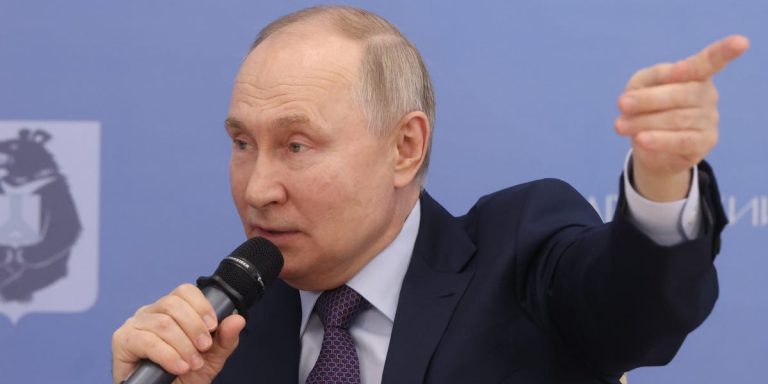- Vladimir Putin has begun to express his anger towards NATO countries Latvia, Estonia and Lithuania.
- His speech sounds very similar to his statements before Russia attacked Ukraine.
- The Institute for the Study of War said Russia's emerging rhetoric toward the Baltic states paves the way for “future escalation.”
Russian President Vladimir Putin is intensifying his rhetoric against the Baltic states, paving the way for a possible “future escalation” with eastern member states of the North Atlantic Treaty Organization (NATO), the Institute for the Study of War said Tuesday.
Putin claimed on Tuesday that Latvia and other Baltic states were “expelling” people of Russian origin from their borders, the Washington-based think tank reported.
His complaint refers to changes in Latvian immigration law that require Russians living as permanent residents in the country to pass a Latvian language test if they want to stay there. About 1,200 Russians were slated for deportation in December because they had not renewed their residence permits under the new rules.
“As you can see, these are very serious matters that directly affect our national security,” Putin was quoted as saying by the official RIA Novosti news agency.
Putin's speech “significantly contributed to amplifying the Kremlin's long-standing efforts to set information conditions for future escalation against the Baltic states, likely as part of its broader efforts to weaken NATO,” the Institute for the Study of War said in a daily assessment.
The think tank said it had found no indication so far that Russia was planning to attack the Baltic states soon. However, the institute warned that Putin may be laying the groundwork for “future aggressive Russian actions abroad under the pretext of protecting its citizens.”
Putin's comment on Tuesday echoed similar statements he made about Ukraine before launching his unprovoked invasion.
One of the reasons Russia claimed for the attack was that Kiev was committing “genocide” against ethnic Russians while fighting pro-Kremlin rebels in Donbas, although there is no evidence for such a claim.
Ukraine, like the Baltic states, is a former Soviet republic, and Putin has “downplayed the sovereignty” of these countries while adopting “an expansive definition of Russia’s sovereignty,” the Institute for the Study of War said.
But unlike Ukraine, the Baltic states – Estonia, Latvia and Lithuania – are all members of NATO.
Undermining their sovereignty and portraying them as bullies toward the Russians would fit Putin's ultimate goal of weakening NATO, the Institute for the Study of War said.
The think tank said it had previously assessed that Putin's goal in invading Ukraine was to destabilize NATO rather than defend a NATO offensive against Russia as he stated.


